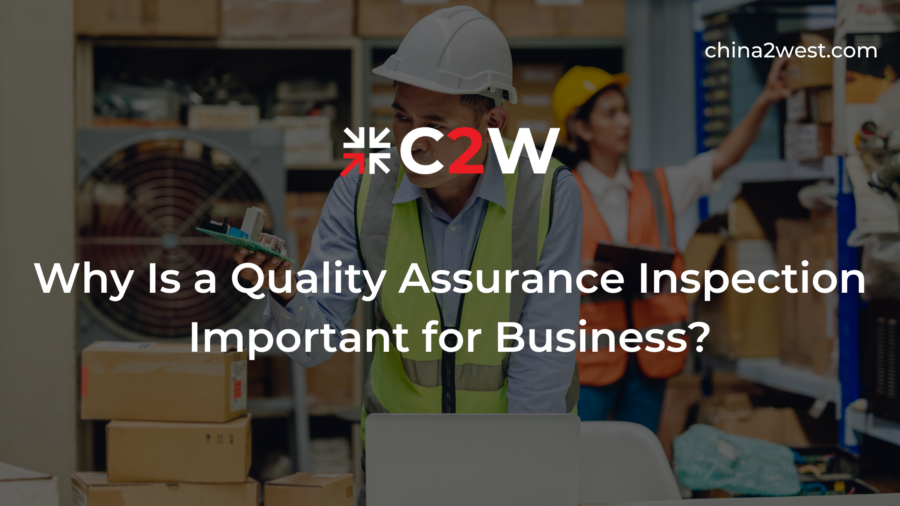Imagine your customer receives a product from your company but because quality assurance (QA) wasn’t on the agenda (just hypothetically), the product didn’t work as promised. Result: You lost a previously loyal customer.
What is quality assurance inspection? This is a critical aspect of any business that aims to deliver products or services that meet or exceed customer expectations. Without a quality inspection, products, services, and processes would not adhere to established standards and comply with regulatory requirements.
In this article, we will explore the importance of quality assurance inspections for businesses, the benefits they provide, and how they contribute to overall success and customer satisfaction.
Ensures Product Consistency
A quality inspection helps ensure consistency in the products and services delivered. By establishing and maintaining strict quality standards, businesses can minimize variations and deviations.
This results in a more uniform and predictable output. Consistency is key to building a positive reputation and customer trust.
You don’t want one customer receiving a product that’s 10 inches by 10 inches and another receiving one that’s 10.5 inches by 10.5 inches. This is a silly example, but you get the point.
Meets Customer Expectations
Customers have specific expectations when it comes to the quality of products or services they purchase. Quality assurance inspections are designed to align the final output with these expectations.
Meeting or exceeding customer expectations not only enhances customer satisfaction but also contributes to customer loyalty and repeat business.
Certain businesses do this very well. Apple is the first one that comes to mind. Folks trust their products because they know the quality is extremely high.
Reduces Defects and Errors
Quality assurance inspections are proactive measures to identify and address defects or errors in products or services before they reach the customer. By implementing robust inspection processes, businesses can catch and rectify issues early in the production or service delivery stages. This happens before business shipments go out to customers.
This reduces the likelihood of defective products reaching the market, minimizing costly recalls and customer dissatisfaction.
Not only that, but every time a customer returns a product due to its being defective, that’s money you have to spend on shipping and fixing the problem. You might have to ship them a new product or fix the old one. All this adds to your costs and reduces your bottom line.
Enhances Brand Reputation
A strong brand reputation is built on a foundation of quality and reliability. Consistently delivering high-quality products or services through effective quality assurance inspections contributes to a positive brand image.
Word-of-mouth recommendations and positive reviews from satisfied customers can further enhance a business’s reputation. This attracts new customers and fosters brand loyalty.
Presumably, you have competitors in your field, and you want to avoid your customers jumping over to them. Quality products will ensure that, in some measure.
Meets Regulatory Requirements
In many industries, compliance with regulatory standards and requirements is mandatory. Quality assurance inspections play a vital role in ensuring that a business operates within the legal framework and complies with industry-specific regulations.
Non-compliance can result in legal consequences, fines, or damage to a business’s reputation. This is another way your bottom line can get hurt if you don’t make QA a priority.
Cost Savings in the Long Run
While implementing a robust quality assurance system requires an initial investment, it often leads to significant cost savings in the long run. By identifying and addressing issues early in the production or service delivery process, businesses can avoid or reduce costs. These costs are associated with product recalls, rework, customer complaints, and potential legal repercussions.
Improves Operational Efficiency
Quality assurance inspections contribute to improved operational efficiency by streamlining processes and identifying areas for optimization. Continuous monitoring and evaluation of processes allow businesses to identify bottlenecks, reduce waste, and enhance overall efficiency.
This not only improves the quality of the final product but also contributes to cost-effectiveness.
Supports Continuous Improvement
Quality assurance is an iterative process that supports continuous improvement. By regularly assessing and analyzing processes, businesses can identify opportunities for enhancement and innovation. A culture of continuous improvement fosters adaptability, responsiveness to market changes, and a commitment to staying ahead of competitors.
Builds Employee Accountability and Pride
Quality assurance inspections instill a sense of accountability among employees at all levels of the organization. Knowing that their work is subject to rigorous quality checks encourages employees to take pride in their contributions. They strive to do better every single day when creating the products.
This sense of ownership can lead to higher morale, increased job satisfaction, and a collective commitment to delivering quality.
Customer Retention and Loyalty
Satisfied customers are more likely to become repeat customers and brand advocates. Quality assurance inspections play a crucial role in ensuring that customers consistently receive products or services that meet or exceed their expectations. This, in turn, contributes to customer retention, fostering long-term relationships and brand loyalty.
Mitigates Risks
Quality assurance is a risk mitigation strategy. By identifying and addressing potential risks during the inspection process, businesses can prevent issues from escalating and causing substantial harm.
Whether it’s addressing manufacturing defects, service delivery shortcomings, or compliance risks, quality assurance inspections provide a structured approach to risk management.
Demonstrates Corporate Responsibility
A commitment to quality assurance reflects corporate responsibility and ethical business practices. Businesses that prioritize quality not only fulfill their obligations to customers but also contribute to the overall well-being of society. This commitment resonates with socially conscious consumers and can enhance a business’s standing in the market.
Make Quality Assurance Inspection an Intricate Part of Your Business
Don’t go home without it. Or more like, don’t let your business go anywhere without a quality assurance inspection.
That’s how important QA is to any business out there who wants to stay competitive and keep their customers.
Are you manufacturing products in China and searching for quality control services there? China 2 West has its own IP protective assembly factory, and we can help make manufacturing and sourcing from China easy for you.
Contact us to learn more about our services.




